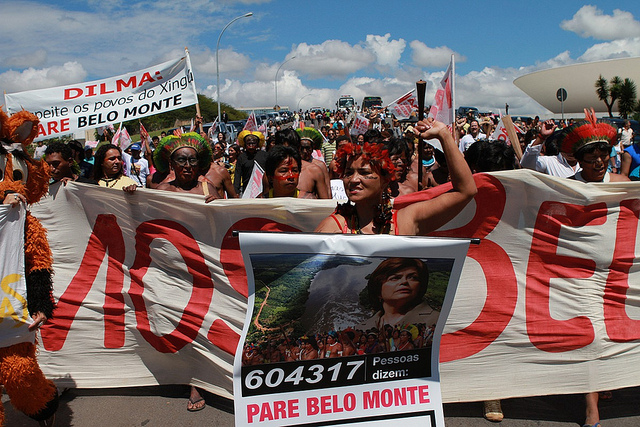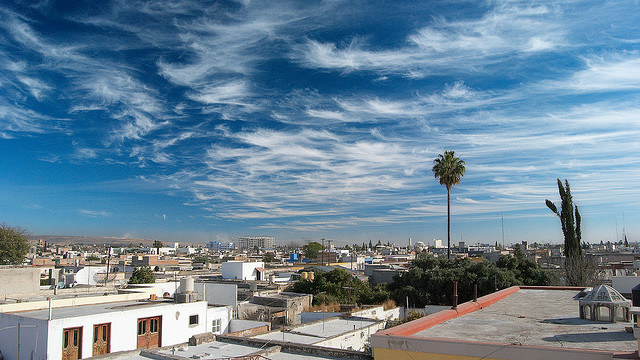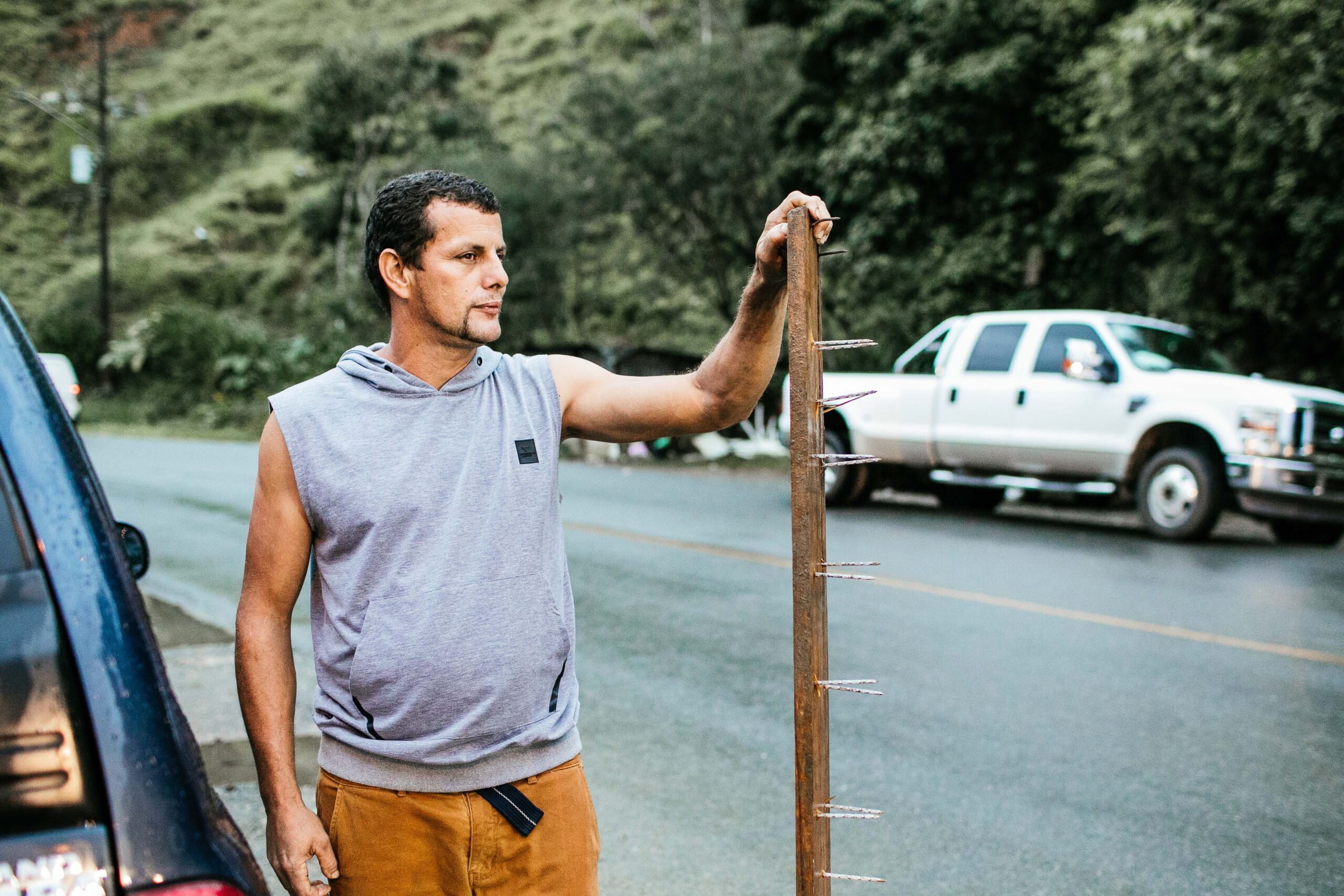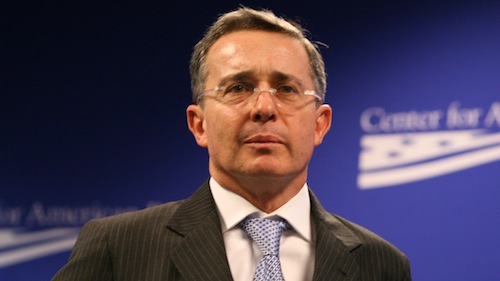
Brazil, Dispatches, Southern Cone
Corruption Weighs on Brazilian Politics
December 19, 2011 By Luis Henrique Vieira
PORTO ALEGRE, BRAZIL — It’s no news to the international community that Brazil struggles with corruption. Early this month, Brazilian President Dilma Roussef fired her sixth minister over corruption charges. There are two more accused ministers on the line who may be fired after the new year.
The worst punishment top politicians can receive in Brazil is to be fired from an important post. They are often prosecuted, but Brazilian justice is so slow that the statute of limitations for most of the cases expires. A few politicians are taking anti-corruption stances, but participation in demonstrations is not yet significant. “We need an ‘Operation Clean Hands’ in Brazil as soon as possible,” Senator Pedro Simon of the state of Rio Grande do Sul has said.
In a movement led by the Brazilian Association of Lawyers to promote political demonstrations against corruption in Brazil’s major capitals, Simon and Senator Jarbas Vasconcelos from the state of Pernambuco have failed to ignite public anger against corrupt politicians. Most of the demonstrations have not gathered more than a few hundred people.
Agnelo Queiroz, the former director of ANVISA (National Agency of Health Surveillance, an organism similar to the FDA in the U.S.), is a member of the PT and the current governor of the Federal District. Back at ANVISA in 2008, he was accused of favoring companies that took a week to grant authorization for his wife’s business, when the process usually takes much longer. Now, as governor, he is being accused of illicit self-enrichment.
There are many types of corruption in Brazil that hurt democracy. What applies to all political parties and administrations, at every level, is the failure to declare the source of funding for political campaigns. Also, federal ministries, state secretariats and other positions are frequently negotiated based on support in Congress and assemblies. In some cases, parliamentary support is secured through bribery, as in the case of the Mensalão, a political scandal discovered in 2005 during Lula’s first term.
Brazil’s Tribunais de Contas (Accounts Tribunals) combat the theft of public money, but those who control them must be approved by the federal or state houses. This creates a give-and-take relationship between executive and legislative branches.
“This exchange has been happening for a long time with all parties. It is always tit for tat. In the case of auditors, they appoint a person friendly to the incumbent governor or president”, explained Cláudio Abramo, president of NGO Transparência Brasil.
Cost
The permissive way that some Brazilians see corruption understates the costs of this troubled reality. Money that can be sent to infrastructure projects, schools or hospitals many times goes nowhere. The country pays nearly 40 percent in taxes, the highest rate in Latin America. Cost overruns can reach 10 times the market prices and some projects take decades to complete. In the northeastern city of Salvador, Bahia, a subway that has been under construction for 12 years has already cost almost US$ 1 billion.
According to a 2008 survey by FIESP (Federation of Industries of the State of São Paulo), corruption accounts yearly for at least 2% of Brazil’s GDP. “The resources are spent, but they don’t reach their goals. The most significant losses are in the increase of expenses in public investments and the waste of resources. It distorts the image of a hard-working country. Is is bad for serious business and public administrators,” said the economist Gustavo Grisa, partner of Agência Futuro, a local and regional development consultancy with offices in Brasilia and Porto Alegre.
Kurt Weyland, a professor of Latin American politics at the University of Texas at Austin, says that the political influence exerted by the corrupt contributes to other Brazilian problems. “Corruption helps to turn social inequality into political influence and thus helps to cement inequality. That is, corruption helps to perpetuate inequality although it did not cause it,” he said.
Causes and future
Endemic corruption in Brazil is not new. In the 19th century, Emperor Dom Pedro II had a well-documented relationship of corruption with Congress. Clientelism is seen as a major factor contributing to a culture of corruption in Brazil. Dom Pedro II’s wife, Empress Leopoldina, was known to give a lot to the poor. “Even nowadays, Leopoldina is very adored and cited by poor Brazilians and is a well-known figure”, said historian Laurentino Gomes, author of the best-selling books “1808” and “1822”.
Many pundits also attribute corruption to illiteracy. “The mentality of assistencialism and clientelism creates conditions for corruption to thrive. The lack of social control and participation of citizens is the most preoccupying factor”, affirmed economist Grisa.
There are a variety of solutions the country could implement to promote transparency and honesty in public offices. One way is to decentralize the power of the federal government, outsourcing some services, privatizing state-owned companies and sharing more power with local governments. “The opportunities for corruption are higher where the public policy-makers allocate economic resources; more chances for influencing decisions with bribes. Paradoxically, market reform also involves state decisions over economic resources. For example, during the privatization process, to whom will public enterprises be sold, and under what conditions? But the more marketized an economy is, the more the opportunities for corruption diminish,” said Professor Weyland.
Manuel Balán, a professor of political science at McGill University, however, points out that every country should find its own way to fight corruption. “Not only are policies sometimes ineffective, but also what works in some places may not work in others. Policies against corruption shouldn’t be the same everywhere, and there are some policies that may even have negative effects,” he stated.
An important step Brazil took this year was to approve a law similar to the U.S. Freedom of Information Act, giving the public more budget information and more transparency. “This law, based on our proposal, will help a lot in the long term,”said Claúdio Abramo of Transparência Brasil.
Professor Weyland affirms that Brazil’s growing middle class will have a great effect on the issue in the future. “The more people emerge from poverty and join the so-called ‘middle class’, the less corruption tends to be accepted. In the U.S., the fight against corruption took 150 years and is still not completed! It is a very difficult process,” he said.
Photo: Agência Brasil
< Previous Article

December 19, 2011 > Staff
Brazil: Judge Overturns Order to Suspend Belo Monte Dam Construction
Next Article >





4 Comments
[…] Luís Henrique Vieira discusses corruption in Brazil after the ouster of six ministers from the government of Brazilian President Dilma Rousseff. […]
[…] Read more… GA_googleAddAttr("AdOpt", "1"); GA_googleAddAttr("Origin", "other"); GA_googleAddAttr("theme_bg", "ffffff"); GA_googleAddAttr("theme_text", "333333"); GA_googleAddAttr("theme_link", "0066cc"); GA_googleAddAttr("theme_border", "5581C0"); GA_googleAddAttr("theme_url", "114477"); GA_googleAddAttr("LangId", "1"); GA_googleAddAttr("Autotag", "politics"); GA_googleAddAttr("Tag", "nation-politics-government"); GA_googleAddAttr("Tag", "brazil-corruption"); GA_googleAddAttr("Tag", "brazil-politics"); GA_googleAddAttr("Tag", "corruption-scandals"); GA_googleAddAttr("Tag", "dilma-rousseff"); GA_googleFillSlot("wpcom_sharethrough"); Share this:DiggLike this:LikeBe the first to like this post. […]
Até quando teremos de aguentar “paraquedistas” denegrindo a imagem da ANVISA. Onde está a comissão de ética e conduta comportamental da ANVISA? Se existe algum processo de ética instalado, queremos transparência, pois o sigilo só interessa a muito poucos, justamente os beneficiários do processo “empobrece Brasil!”
Att
Marcos Arbos
I guess they chose brooms because industrial strength vacuum cleaners would have been prohibitively expensive.
Comments are closed.